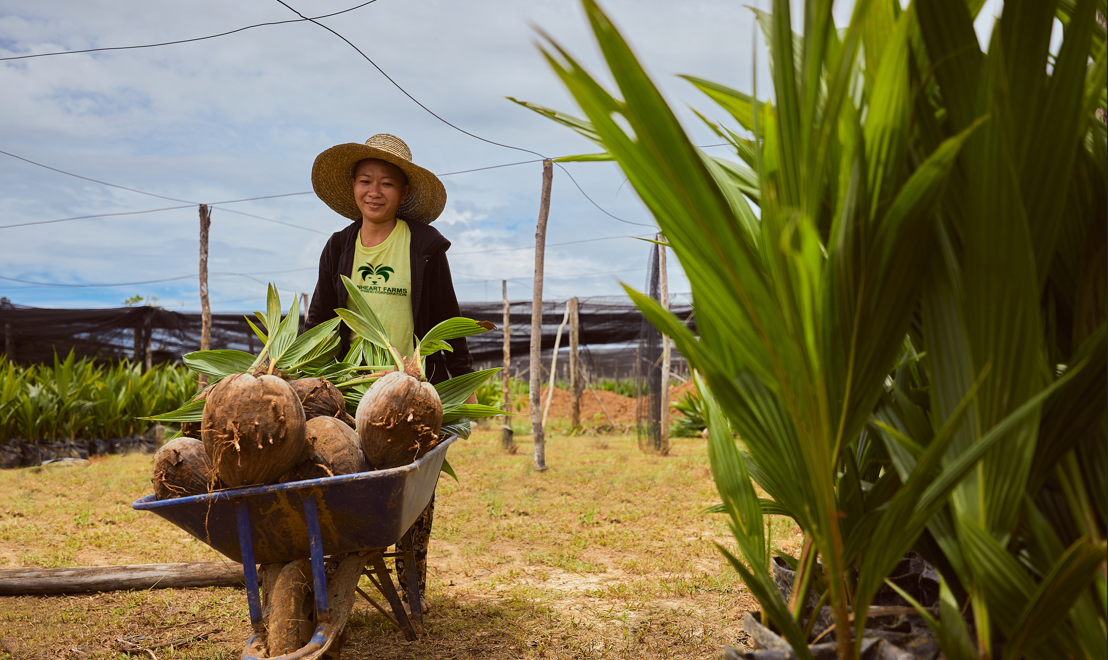
Coconut farmers are among the poorest of the poor in the Philippines. Whereas, the national poverty line at the moment is on the average at about 17%, there are provinces among the 69 growing coconuts (out of 82 provinces in the entire archipelago) that have poverty incidence as high as 50% to 60%, especially in the island of Mindanao.
It is small comfort to learn that coconut production has been recently growing at 2% on the average if most of the revenues go to middlemen and the large processing plants. It is neither worth celebrating to learn that the Philippines is the largest exporter of coconut products in the world (although Indonesia is the largest producer but consumes most of what it produces) if the farmers who grow coconuts continue to wallow in poverty.
The present administration can contribute most to sustainable and inclusive growth by significantly increasing the productivity of the coconut sector and at the same time making sure that the 3.5 million coconut farmers get a larger share of the increase in productivity.
The coconut industry can do much to contribute to food security because it has a total production area of 3.62 million hectares with 347 million fruit-bearing trees and a total production of 14.7 million (nut terms) in 2018. Furthermore, many other higher-value crops such as vegetables, fruits, coffee and cacao, among others, can be intercropped between coconut trees in those 3.62 million hectares.
It is not comforting to hear official government excuses for the underdevelopment of the industry. In the website of the Philippine Council for Agriculture, Aquatic and Natural Resources Research and Development of the Department of Science and Technology (DoST-PCAARRD) one can read the usual lamentations. The following problems facing the coconut industry are cited: “In the past, the coconut industry has experienced various challenges ranging from low production to natural calamities and pest infestations. Certain studies pointed to low productivity being caused by old and senile coconut trees.
On the other hand, historical disasters, specifically typhoon Pablo and Yolanda in 2012 and 2013 also instigated massive damages on coconut farms and other key players with the coconut supply chain. The industry further faced numerous infestations from coconut scale insects (CSI), locally known as cocolisap, which were first observed in 2010 … Although replanting is the immediate solution for the abovementioned problems, it will still take several years for them to reach the optimum maturity for production.”
So what else is new? These are the usual problems faced by any of the products of the agricultural or fishery sector, i.e., natural calamities, diseases, and lack of funding and technology support. It is up to us human beings to use our creativity, ingenuity and enterprising spirit to solve these problems!
That is why it was very refreshing to hear a foreign executive, Christian Moeller, describe how thousands of coconut farmers (including members of an indigenous tribe) had been liberated from poverty within a short period of six years through a business enterprise model that combined the four strategic solutions to the problem of the entire agricultural sector: consolidation, diversification, digitalization and industrialization as outlined in the transition report of former Secretary of Agriculture William Dar to President Marcos Jr.
Mr. Moeller was one of the speakers in the inaugural event of the newly established Palawan Business Club, an initiative of members of the business community and civil society of the province of Palawan to replicate the experience of the Makati Business Club of getting people in business to promote the common good of Philippine society instead of just focusing on their legitimate vested interests (similar to what the Iloilo Business Club did more than 30 years ago).
In the case of Lionheart Farms, the initial products were coconut flower sugar, coconut nectar/syrup and coconut aminos which are mostly exported and are among those high-value products from coconut that should replace the traditional copra and coconut oil that have resulted in very limited revenues for the coconut farmers.
The small farms are leased to the nucleus corporation (Lionheart Farms) by small farmers, usually beneficiaries of agrarian reform. The farmers receive a rental for their farms and are further benefited by members of their families being hired as workers in the various stages of farming and processing of the raw materials to the finished products.
As one of the couples participating as both leaseholders and workers commented: “We benefit most from the company because upon our computation, the rent we get from our land leased to Lionheart is higher than the buying price of copra. They also gave job opportunities … I am happy because my wife is now 55 years old and yet, the company never hesitated to hire her. It is her first time to be employed with mandated benefits. We couldn’t be happier. Now, we learn organic farming practices and see the benefit of coconut palms. We learn so much from Lionheart and have much better stability in life.”
The skills being learned in situ by the farmers and members of their families can also go a long way in the diversification strategy. Coconut farms are among the best for diversification of crops because they are most amenable to intercropping.
Organic farming practices can be applied to such crops as cacao, coffee, vegetables and fast-growing fruits such as papaya. In fact, in the conference organized by the Palawan Club, I suggested that the management of Lionheart Farms should partner with such agribusiness enterprises as Harbest and East West Seeds that provide both technical training and the seeds for the planting of a large variety of vegetables, fruits and flowers that can increase even more the incomes of the farmers and the indigenous people in Rizal Province.
In the future, some NGOs are actually planning to put up a training center for master gardeners who can come from the unemployed and underemployed people in Southern Palawan. Palawan has the potential of not only becoming self-sufficient in many of these high-value products but can provide for the increased demand for high-value food products that will result from the boom in tourism expected in the coming years (Palawan has been for hailed in the international press as the Best Island Resort in the world).
This article was written by Bernardo M. Villegas, professor emeritus at the University of Asia and the Pacific and was originally published at Business World Online on November 22, 2022.




